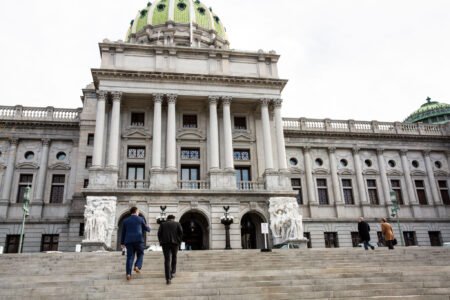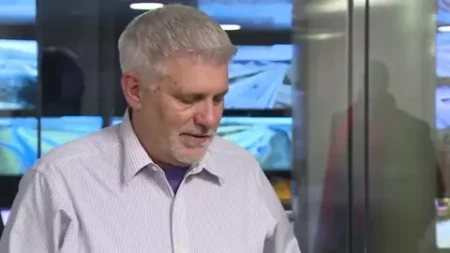U.S. President Donald Trump’s special envoy, Keith Kellogg, said on Monday that officials are “working very, very hard” to end the three-year war between Russia and Ukraine. Progress has been slow, raising doubts about a near-term peace settlement.
Kellogg explained that officials aim to establish “security guarantees” that would reduce Ukraine’s fear of another Russian invasion in the future. He called the plan “a work in progress” after attending Ukraine’s National Prayer Breakfast with politicians, diplomats, and business leaders.
Last week, Trump claimed he had set plans in motion for direct peace talks between Russian President Vladimir Putin and Ukrainian President Volodymyr Zelenskyy. However, Russian officials have indicated that such a summit is unlikely to happen soon. Trump added that he expects to decide on next steps within two weeks if talks are not scheduled.
Kyiv has seen a stream of high-level visitors, reflecting concern for the U.S.-led peace efforts. Canadian Prime Minister Mark Carney visited on Sunday, pledging 2 billion Canadian dollars in aid. NATO Secretary General Mark Rutte was in Kyiv on Friday. Germany’s Vice Chancellor and Finance Minister Lars Klingbeil arrived Monday to discuss “how Germany can best support Ukraine in a possible peace process.”
Meanwhile, Putin spoke by phone with Iranian President Masoud Pezeshkian on Monday. Russia maintains close ties with Iran and has strengthened relations with China, India, and North Korea as Western nations back Ukraine. Putin and Pezeshkian are expected to meet next week during China’s Shanghai Cooperation Organization summit in Tianjin.
Klingbeil told Zelenskyy that allies must plan for scenarios if Putin refuses to stop the war. Germany will continue to support Ukraine, echoing the stance of Norwegian Prime Minister Jonas Gahr Store. Norway has committed multibillion-dollar military and civilian support for Ukraine, extending into next year. Store said he will propose spending $8.45 billion on Ukraine in 2026. He emphasized that Ukraine is defending a key European principle by rejecting Russia’s territorial claims. Analysts note that Putin may seek to outlast Western support and expand Russian control over Ukraine while peace talks continue. Norway on Sunday pledged about 7 billion kroner ($695 million) for Ukrainian air defense systems. Norway and Germany are jointly funding two U.S.-made Patriot missile systems and related radar equipment.
Ukraine’s Air Force reported that Russia launched 104 strike and decoy drones overnight, targeting northern and eastern regions. No immediate casualties or damage were reported. Ukraine has also continued long-range drone attacks on Russia, hitting oil refineries, armories, and transport hubs. Some attacks disrupted commercial flights. On Sunday, a Russian tourist flight from Sharm El Sheikh to St. Petersburg was diverted to Tallinn after the St. Petersburg airport temporarily closed due to a drone strike. The Russian Defense Ministry reported intercepting 23 Ukrainian drones overnight and Monday morning across seven regions. These drones were detected near the Ukrainian border and deeper inside Russian territory.
The ongoing violence and diplomatic efforts highlight the fragile and complex nature of the Russia Ukraine peace talks, with global powers closely monitoring the situation.







